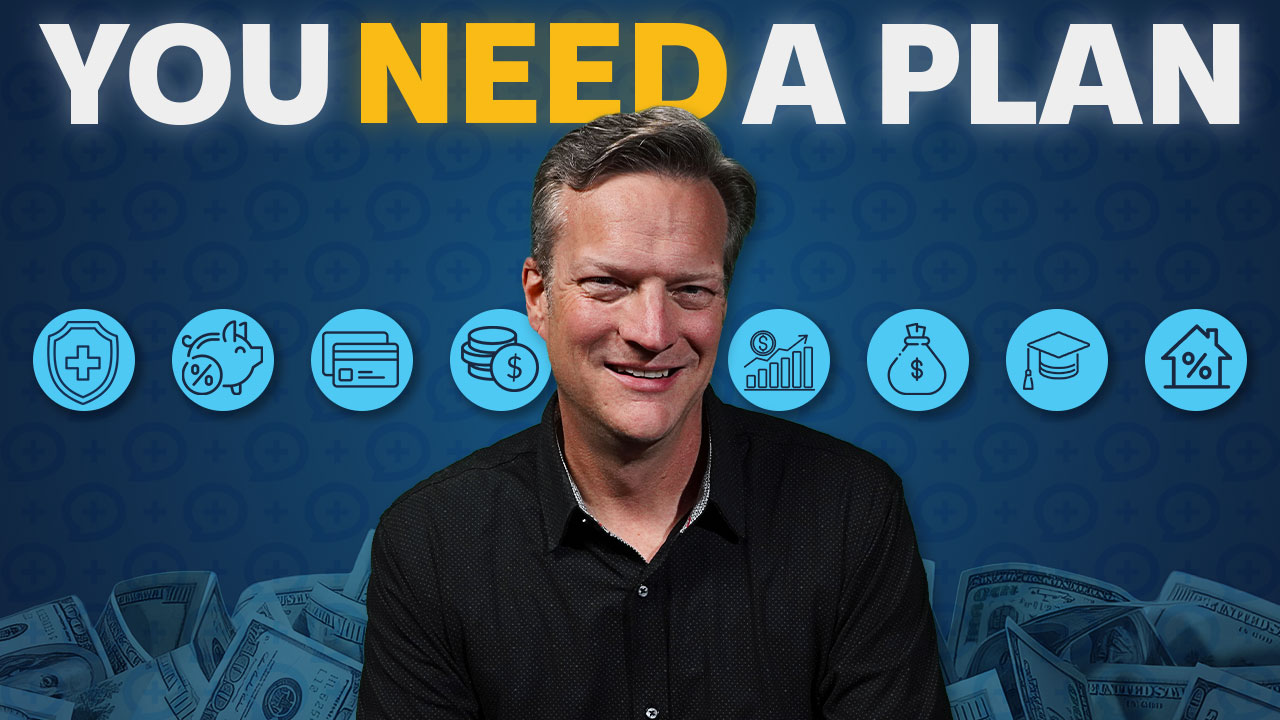Let's dive into Singer 117's question. It says, "I'm 29 and just started my Roth 401k and Investments almost exactly two years ago, almost 10K value in both which is awesome. I'm conflicted on adding cash to save for a home and miss out on this bear market. Thoughts?"
Yeah, this is a common thought that a lot of young people aspiring to build wealth have. They think, "okay, I'm in these early stages. I listen to The Money Guy show. I know how powerful one dollar can be. I know that one dollar can turn into 88. So everything that I do, I want to focus in that direction."
We see people making decisions like in your situation - not saving for a house down payment. Or maybe a more aggressive one that we see is people not actually having an emergency fund. They want to get those dollars working and going in the right direction. And I love the fervor, excitement, intention, and intensity at which you're approaching building wealth.
However, you do have to stop and pause and say, "okay, what's the goal here?" Money is nothing more than a tool that allows us to do the things that we want to do. So one of the things that you might want to do one day is retire. You might want to have a portfolio large enough that you can live off of it. You might want it to provide for your needs. But before that point, you may have the desire to own a home, to start a family, to set roots, to establish yourself. And so, if that is one of the goals, I think it's okay to make one of your top priorities building up that cash and starting to save for that down payment so that you can satisfy that goal, because that's more of a near-term goal than a long-term goal.
Now in our world right now, I'm curious to hear your thoughts on this. I love when it's not all or nothing. I love when people still do things like, "Okay, I'm going to save for a down payment, but I'm not going to walk away from that employer match. And I'm not going to carry the high-interest debt. I'm going to have an emergency fund. And maybe I'm even going to do my Roth IRA, my HSA, and I'm going to do both. And I'm going to do both so I can actually be building towards both of those goals simultaneously. It's not necessarily either-or."
Well, let's first make sure we leave the question with some type of nuggets of information that they can consider seeing how this reply applies to them. When we do the
Financial Order of Operations, steps one and four are cash-heavy. Step one is just deductibles covered. That's where you're just going to add up your health insurance deductible, you're going to find out what your car insurance, homeowner's insurance, and take the highest number that gets you passed step one. That just keeps you out of catastrophic trouble. Step four, after you get the employer match, after you pay off the high-interest debt, that's to get to the three to six months. That's the way we think you ought to do about cash.
But here's the trap: a lot of financial mutants (because I fell deadhead first into this trap) start getting excited about watching their money grow. There is something truly fabulous about watching your money, especially when you hit some up points where it makes more in a week than you made in a month. I mean, there are some really cool things that happen with compounding growth. But do not, and I repeat, do not fall into the access to cash versus actually having cash in step one of the
Financial Order of Operations.
I'm just telling you, you don't have to feel like you have to get creative. You're not in this journey alone. We've been there, done that, and we've helped thousands and thousands of people with this process. Go check it out
moneyguy.com/resources. You too can see our tried and true systems.













